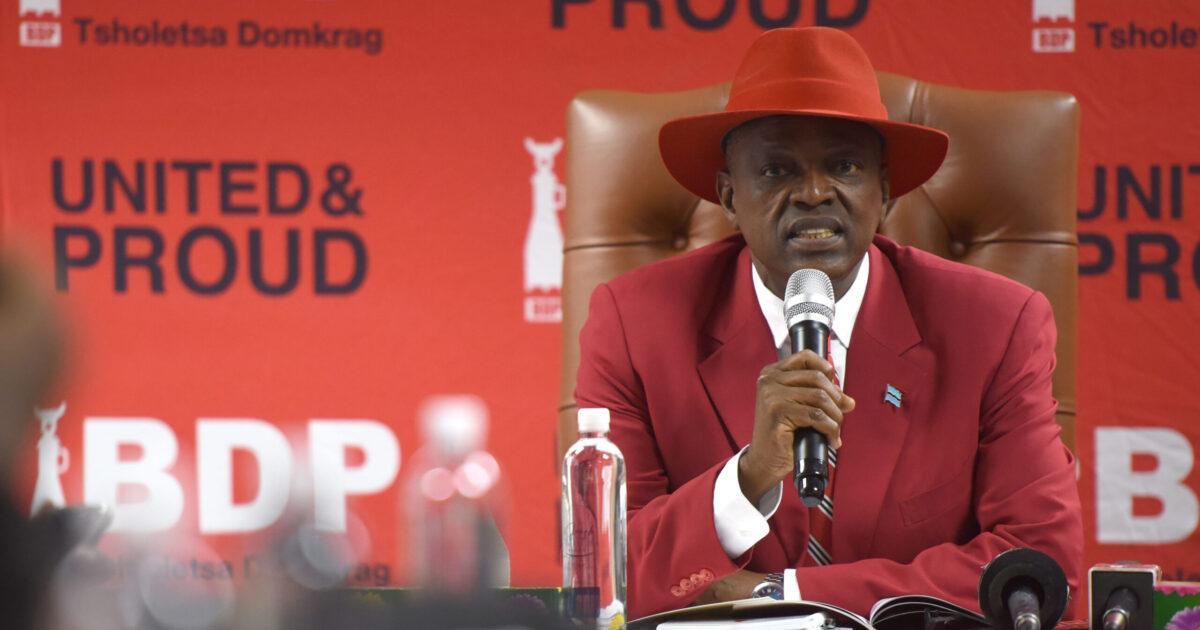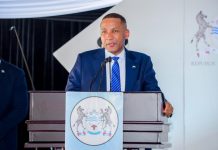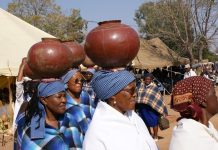Africa-Press – Botswana. De Beers has flatly denied explosive claims by former president Mokgweetsi Masisi that the diamond giant helped fund the opposition Umbrella for Democratic Change (UDC) in the 2024 elections. Masisi alleged at a BDP press conference this week that De Beers interfered in Botswana’s political process, financing the downfall of his party.
Mining giant De Beers has strongly denied allegations made by former president Mokgweetsi Masisi that it played a role in the 2024 general elections that saw the Botswana Democratic Party (BDP) ejected from power for the first time in 58 years.
Asked for their reactions to the claims and concerns raised by Masisi, De Beers said it does not fund political parties or interfere in the political affairs of any country.
“In line with our Code of Conduct, De Beers Group does not support any political party, group or individual,” reads the response.
“De Beers interfered…”
“We do not provide financial or other support for political purposes to any politician, political party or related organisation, or to any official of a political party or candidate for political office, in any circumstances, either directly or through third parties,” read the De beers position on the issue.
This comes after President Masisi, told a Botswana Democratic Party press conference in Gaborone this week that De Beers had interfered in the country’s electoral process.
He said the diamond conglomerate had been instrumental in orchestrating the downfall of the BDP by financing the opposition Umbrella for Democratic Change (UDC).
Schlemmer Report
“I dare them (De Beers) to deny they are interfering in Botswana politics — including use of finances,” Masisi charged.
“They started with my party through the financing of the Schlemmer Report. It was fundamentally a De Beers project, sugar-coated to appear as if it was a BDP initiative. They can’t deny it.
“They also can’t deny that they secretly financed the retirement of a former president, and it’s only a matter of time before it becomes public how they financed the change of government because of the injury they felt at the negotiating table.”
Long-standing debate
Masisi’s explosive allegations reignited a long-standing debate about the influence of multinational corporation on Botswana’s political landscape, particularly De Beers, which has operated in the country for decades through a joint venture with the government.
Weighing in on the controversy, University of Botswana political science professor, Dr Zibani Maundeni, said while De Beers’ hand in Botswana’s political space is not new, Masisi’s outrage is surprising.
“Masisi has been quiet because his party was a beneficiary,” he said. “Why is it an issue now, just because someone else is benefitting and not him or his party?
“Where was he all along?”
“Where was he all along when concerns were raised about the murky relationship between the business elite and those in power?
“The BDP turned a deaf ear to calls for transparency and political funding regulation, even when it became clear that such secretive donations were polluting the democratic space.”
Maundeni pointed out that like many other businesses in Botswana, De Beers historically supported the BDP financially.
“But in recent years,” he added, “as it became increasingly evident that the BDP’s popularity was fading, corporate donors began to hedge their bets by funding all potential winners, including the opposition.”
Masire’s GM Five
This is not the first time that De Beers has been implicated in political funding in Botswana. In 2010, former president Sir Ketumile Masire and his company GM Five came under public scrutiny following revelations that De Beers had bailed him out of financial trouble in the 1980s and 1990s.
Reports at the time alleged that De Beers paid an expatriate manager to run Masire’s farms and offered financial assistance amounting to P4 million.
Masire’s “object lesson”
Although Masire admitted receiving funds from De Beers under controversial circumstances, he denied claims that he was paid to step down from office.
Reflecting on the matter, Masire once remarked: “With the perfect vision of hindsight, I would not now enter into such an arrangement… its outcome was also an object lesson for me in the pitfalls of trying to manage a commercial farm by remote control.”
De Beers later admitted it provided financial support to Masire and funded a consultancy project — the Schlemmer Report — widely credited with helping the BDP secure victory in the 1999 elections.
“We have been supportive…”
At the time, a De Beers executive Stephen Lussier acknowledged that while the company could have been more transparent, its actions were aimed at protecting its investments in Botswana.
“The Botswana Government has over the years created an environment which is easy for us to operate in, in terms of the rule of law and democracy, and this is why we have been supportive of the government,” the executive was quoted as saying.
For More News And Analysis About Botswana Follow Africa-Press






